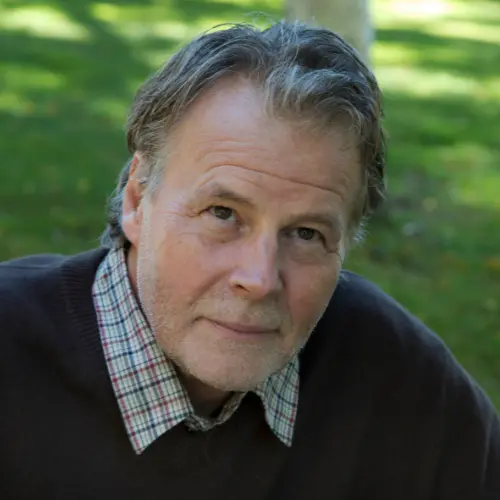Urban Commons
Urban Commons is a research programme within SFO Urban Sustainability centred on interdisciplinary research and collaboration for socially sustainable urban development. It focuses on both existing residential areas and innovative urban planning for urban social sustainability
The research represents a holistic perspective that includes public health, welfare, ecology, ethics, outlook and enabling more people to participate in the transition to a fossil-free and greener society. One key aspect of urban commons is the shared participation and influence of people in sustainable urban development.
Social sustainability
The development of society in Sweden and internationally has been characterised by global market liberalisation, increasing environmental and health problems and growing individualisation in recent decades. This has led to a decline in joint projects and solutions in different areas of society. The Swedish general welfare state has gradually taken on the nature of a mixed welfare model with market models and private welfare stakeholders. There has been redistribution of resources from the democratically governed public sector to the market-driven private sector, where resources and influence have been concentrated among certain groups. This has resulted in increasing inequality and polarisation, with groups and areas being marginalised. This is particularly evident in urban environments, where some groups have accumulated very valuable property and capital in city centres and residential areas, while excluded groups live in segregated and deprived suburban areas. This urban development causes social problems and adversely impacts on public health, welfare and people’s living conditions and is therefore not socially sustainable. Urban Commons focuses on criteria for sustainable urban development, focusing in particular on social sustainability. Socially sustainable urban development aims to increase accessibility, inclusion, equity and equality in order to promote the right of citizens to equivalent good health and well-being in a healthy environment.
The concept “commons”
Urban Commons is a concept that focuses on the relationship between urban planning/built environment and social conditions, actors, activities and processes. How can the urban environment be designed to create joint participation, influence, and activity - and how can social actors jointly contribute to the design of places for meetings and activities? Urban commons are places, resources or phenomena that lie between or beyond the private and the public, the market, and the state. In research, “commons” has a broader meaning that includes the common ground, communities, and commonalities. The common ground that unites people and brings them together. Commons can thus include communities – groups and areas – but is broader than that. “Commons” can be said to be the opposite of “commodity”. Privatisation has reduced equivalence and shared access to resources, services and places, as is particularly evident in urban spaces. Commons may be synonymous with the public sector, but the public sector becomes commons only when citizens have genuine influence. Commons means more democracy rather than more state. The key element of commons is the commonality itself, not whether it exists in a private or a public context, form of ownership or management. However, deregulation, market models and commodification of the public sector have weakened the collective democratic influence over society’s resources. Commons is all about shared influence within and beyond the state and the market, and that people who are affected should have equivalent access and rights to participate in and influence decision-making processes that affect their lives.
Research programme
The Urban Commons research programme focuses on how the common can be strengthened in different ways in order to benefit socially sustainable urban development. More specifically, it relates to common strategies on how to provide the city’s residents with equivalent access to clean air, water, natural areas, parks, housing, community centres, streets and squares, shopping centres, infrastructure, work, education, services, health, care and welfare, for example. This requires consideration of forms of ownership, urban planning, administration, management and distribution. Building social relationships and common resources paves the way for shared power and influence. Networking and self-organisation are important foundations for common action, empowerment and participatory democracy. Urban social sustainability requires long-term community work that involves various forms of social planning, local development and social mobilisation.
Themes within the programme
The Urban Commons interdisciplinary research programme spans a range of topics. What unites them is that their research focuses on economically, ecologically and socially sustainable urban development, focusing primarily on social sustainability. The research programme has a number of general themes:
- Societal conditions for health, welfare and urban social sustainability
- Community work and urban planning for socially sustainable urban development
- Ecosocial work for health and sustainable urban development
- Community climate commons to enable more people to participate in the transition to a fossil-free society
- Migration, inclusion and ethnic diversity for sustainable cities
- Existential aspects of sustainable urban development
- Capital formation and Corporate Social Responsibility for sustainable urban development
Research projects
Almost twenty research projects are in progress within the scope of these general themes. The research network based at the University of Gävle for Urban Commons includes some twenty researchers. Several of the researchers also participate in the research program FAIRTRANS External link.. Doctoral projects linked with Urban Commons are also being conducted within the Future-Proof Cities research school.
External link.. Doctoral projects linked with Urban Commons are also being conducted within the Future-Proof Cities research school. External link.
External link.
Urban Commons in media
Activities
Urban Commons i media
- Article: Increased influence for tenants generates greener cities
Publications
Publications by researchers with in Urban Commons
- Sjöberg, S. & Turunen, P. (2022). Community work in Nordic welfare states in transformation : directions, conditions and dilemmas. Nordic Social Work Research. https://doi.org/10.1080/2156857x.2022.2056812
 External link.
External link. - Colding, J., Barthel, S., Ljung, R. Eriksson, F., and Sjöberg, S. Urban Commons and Collective Action to Address Climate Change. Social Inclusion (ISSN: 2183–2803) 2022, Volume 10, Issue 1, Pages 103–114 https://doi.org/10.17645/si.v10i1.4862
 External link.
External link. - Andersson, E., Grimm, N., Lewis, J., Redman, C., Barthel, S., Colding, J. & Elmqvist, T. (2022). Urban climate resilience through hybrid infrastructure. Current Opinion in Environmental Sustainability, 55. https://doi.org/10.1016/j.cosust.2022.101158
 External link.
External link. - Chang, E., Sjöberg, S., Turunen, P. & Rambaree, K. (2022). Youth Empowerment for Sustainable Development: Exploring Ecosocial Work Discourses. Sustainability, 14 (6). https://doi.org/10.3390/su14063426
 External link.
External link. - Elmqvist, T., Andersson, E., McPhearson, T., Bai, X. Bettencourt, L., Brondizio, E., Colding, J. al. 2021. Urbanization in and for the Anthropocene. npj Urban Sustain 1,6 (2021). https://doi.org/10.1038/s42949-021-00018-w
 External link.
External link. - Colding, J., Marcus, L. and S. Barthel. 2021. Promoting Partnership between Urban Design and Urban Ecology through Social-Ecological Resilience Building. In M. Wallhagen and M. Cehlin, editors, Urban Transition - Perspectives on Urban Systems and Environments. Published: March 10th 2021. https://doi.org/10.5772/intechopen.96642
 External link.
External link. - Barthel, S., Colding, J., Hiswåls, A., Thalén, P., Turunen, P. 2021. Urban green commons for socially sustainable cities and communities. Nordic Social Work Research. http://dx.doi.org/10.1080/2156857x.2021.1947876
 External link.
External link. - Sjöberg, S. & Kings, L. (2021). Suburban commons : the rise of suburban social movements and new urban commons in marginalized neighborhoods in Stockholm. Nordic Social Work Research. https://doi.org/10.1080/2156857X.2021.1982753
 External link.
External link. - Sjöberg, S. (2021). Community work in the context of the Swedish welfare model in transition. Social Glocalisation and Education : Social Work, Health Sciences, and Practical Theology Perspectives on Change. Leverkusen Opladen: Verlag Barbara Budrich. S. 97-114.
- Colding, J., Colding, M. & Barthel, S. (2020). The smart city model : A new panacea for urban sustainability or unmanageable complexity?. Environment and Planning B: Urban Analytics and City Science, 47 (1), 179-187. https://doi.org/10.1177/2399808318763164
 External link.
External link. - Colding, J. Barthel, S. and K. Samuelsson. 2020. Supporting bottom-up human agency for adapting to climate change. One Earth 3(4):392-395. https://doi.org/10.1016/j.oneear.2020.09.005
 External link.
External link. - Gren, Å., Colding, J., Berghauser-Pont, M. & Marcus, L. (2019). How smart is smart growth?: Examining the environmental validation behind city compaction. Ambio, 48 (6), 580-589. https://doi.org/10.1007/s13280-018-1087-y
 External link.
External link. - Samuelsson, K., Colding, J. & Barthel, S. (2019). Urban resilience at eye level : spatial analysis of empirically defined experiential landscapes. Landscape and Urban Planning, 187, 70-80. https://doi.org/10.1016/j.landurbplan.2019.03.015
 External link.
External link. - Colding, J., Barthel, S. & Sörqvist, P. (2019). Wicked Problems of Smart Cities. Smart Cities, 2 (4), 512-521. 10.3390/smartcities2040031 [Mer information]Colding, J., Gren, Å. & Barthel, S. (2020). The Incremental Demise of Urban Green Spaces. Land, 9 (5). https://doi.org/10.3390/land9050162
 External link.
External link. - Rambaree, K., Sjöberg, S. & Turunen, P. (2019). Ecosocial change and community resilience: the case of “Bönan” in glocal transition. Journal of Community Practice, 27 (3-4), 231-248. https://doi.org/10.1080/10705422.2019.1658005
 External link.
External link. - Sjöberg, S., Többe-Schukalla, M., Singh, S. & Martinss, K. (2018). Community work in Germany and Sweden in context of changing welfare models. International Social Work, 61 (4), 553-570. https://doi.org/10.1177/0020872816666622
 External link.
External link. - Sjöberg, S. & Turunen, P. (red.) (2018). Samhällsarbete : aktörer, arenor och perspektiv. Lund: Studentlitteratur AB.
Programansvariga

Contact Johan Colding if you have questions about the research project or read more about his research and see his publications in the researcher presentation.

Stefan Sjöberg
Associate professor in social work and Senior Lecturer (PhD) in Sociology
Contact Stefan Sjöberg if you have any questions about the research project or read more about his research and see his publications in the researcher presentation.
This page was last updated 2024-04-17
